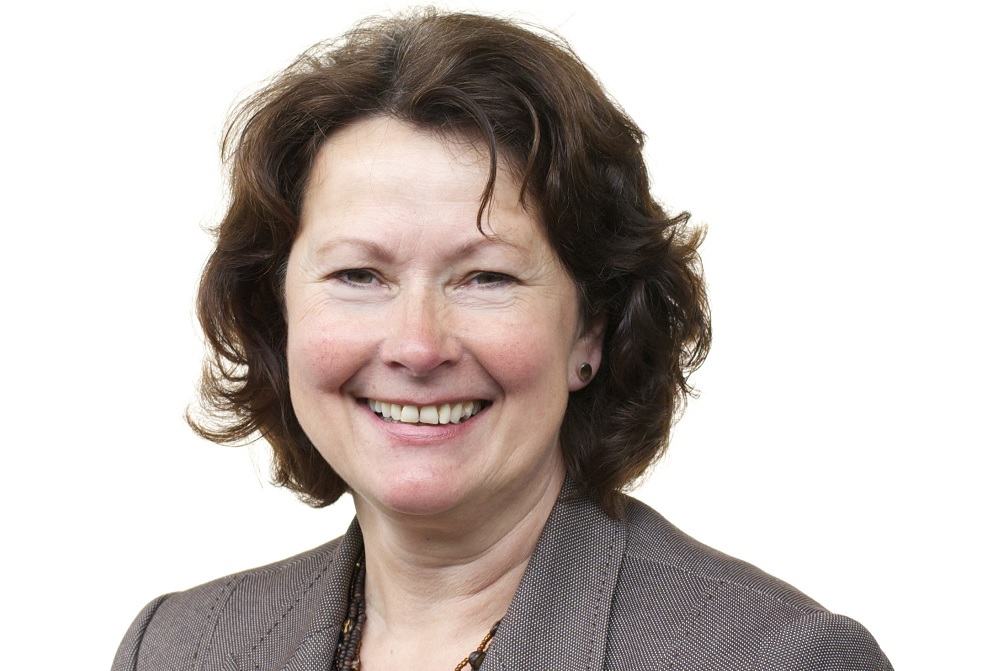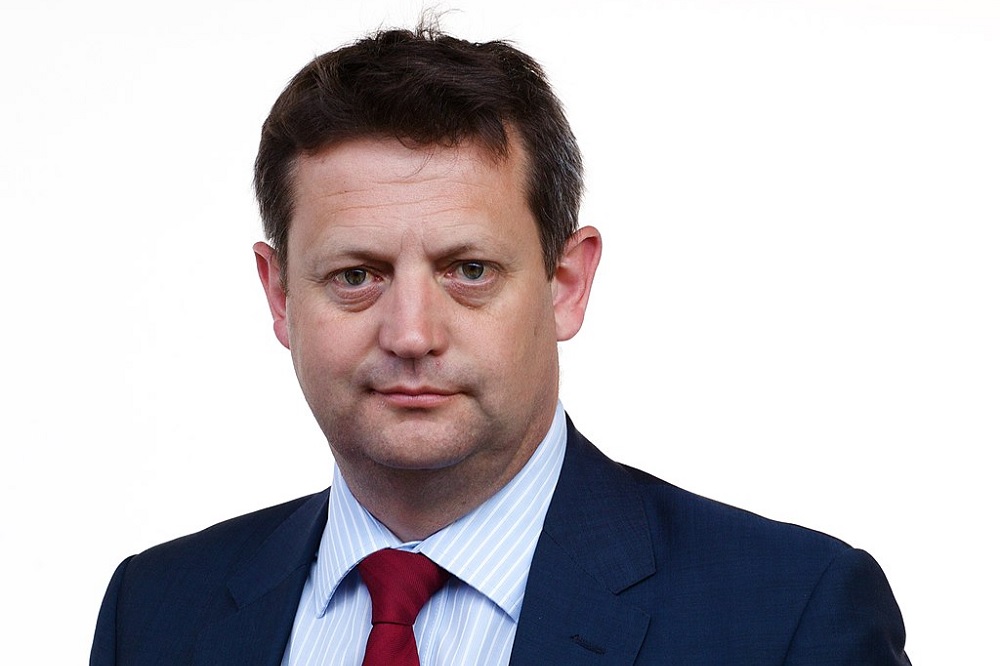Today’s Senedd roundup: Senedd backs call for full A&E services to be kept at Royal Glamorgan Hospital

Owen Donovan, Senedd Home
The Motion (Amended/Final Version)
The Senedd:
- Recognises a cross-party statement on the Future of Safe Emergency Care in Cwm Taf Morgannwg.
- Recognises the need for Cwm Taf Morgannwg Health Board (CTM) to act with openness and transparency when deciding on future A&E services and also recognises that unscheduled care must be robust, safe and sustainable.
- Supports a permanent and fully-resourced A&E department at the Royal Glamorgan Hospital and rejects proposals by CTM to end 24-hour consultant-led A&E services at the hospital.
- Calls on the health board to: rule out the closure of the A&E service or replacing it with with a 24-hour minor injuries unit; reinstate the option of maintaining full consultant-led A&E service at the Royal Glamorgan, Prince Charles and Princess of Wales hospitals; bring forward other proposals for community health services, including improvements in the out-of-hours GP service and extending the opening hours of the minor injuries unit at Ysbyty Cwm Rhondda and Ysbyty Cwm Cynon.
“Labour….presides over a policy of closing an A&E in one of the most deprived areas in Wales”
While most of the debate was framed around the Royal Glamorgan A&E issue, Shadow Health Minister, Angela Burns AM (Con, Carms. W. & S. Pembs.), listed several statistics which showed how under strain emergency departments were across the country. While winter is seen as a particularly difficult time, this was becoming a year-round issue.
“It is a fact that attendance at emergency departments has only grown by 7.4%, yet in the same time period, eight-hour waits have gone up by 254%. And, the Welsh Government’s data has come up trumps because we know that since 2013….the number of people waiting for 12 hours or more has gone up by a staggering 318%.”
– Shadow Health Minister, Angela Burns AM
Leanne Wood AM (Plaid, Rhondda) said the Labour Welsh Government is set to close an A&E department in one of the most deprived areas of Wales; Sheffield University research has shown that every 10km traveled to an A&E department increases the risk of death by 1%. She believed plans to downgrade services become a self-fulfilling prophecy whereby consultants avoid working at a hospital where services are under threat. Among the solutions includes offering agency staff full-time employment.
Neil McEvoy AM (Ind, South Wales Central) recently saw for himself overcrowding at A&E departments and wants to declare a health emergency. Mick Antoniw AM (Lab, Pontypridd) said recruitment wasn’t at the heart of the problem, but the South Wales Programme is now massively out of date and irrelevant due to population changes in the area.
RGH A&E “performs well” compared to the rest of Wales
Suzy Davies AM (Con, South Wales West) said the Princess of Wales Hospital in Bridgend – where most of the RGH’s A&E patients would be redirected to – is itself under pressure and unlikely to cope due to delayed transfers of care/bed-blocking which means it takes longer to move patients from A&E to other wards.
“Closure simply doesn’t make sense. For example, during 2019, the A&E service at the Royal Glamorgan was attended by nearly 64,000 people. That’s over 2,000 more than Prince Charles Hospital, and 4,500 more than the Princess of Wales. While it would be iniquitous to pit one hospital against another, it is only fair to recognise that the Royal Glamorgan has the busiest A&E department in Cwm Taf Morgannwg, and it also performs extremely well….Royal Glamorgan Hospital’s A&E consistently records the highest percentage of patients being seen within less than the target waiting times. “
– Vikki Howells AM (Lab, Cynon Valley)
Nick Ramsay AM (Con, Monmouth) said people can be on board to change but only when it’s properly sold to them, like the Clinical Futures Programme in the Aneurin Bevan Health Board (Gwent).
Darren Millar AM (Con, Clwyd West) called on the Health Minister to be brave enough to challenge the information presented to him and make an intervention – as the Welsh Government previously did for neonatal services at Ysbyty Glan Clwyd.
Health Minister, Vaughan Gething (Lab, Cardiff S. & Penarth), said while the protest outside the Senedd yesterday underlined the value the public place on the NHS, a professional judgement call on the future of A&E services had to be made and AMs couldn’t expect him to intervene in order to continue to run what could end up being an unsafe service.
While there was a recruitment drive underway, that will take several years to filter through and, ultimately, there were no quick fixes:
The motion was carried by 32 votes to one with 18 abstentions. For the record, Carwyn Jones AM (Lab, Bridgend) voted against. The Health Minister said during the debate the government would vote against the unamended motion, but as the government amendments were approved, they abstained instead.

AMs agree the future of services can’t be online-only
The Motion
The Senedd:
- Notes that more and more services are only available online.
- Recognises that not everyone has access to, or is comfortable using, the internet.
- Calls on the Welsh Government to ensure there are offline alternatives to online public services and to discuss with banks, businesses and other organisations to ensure that customers are not isolated if only online services are offered.
Online-only services “cause real anxiety” to the elderly
Rhun ap Iorwerth AM (Plaid, Ynys Môn) said the debate wasn’t about rejecting new technologies, but addressing the concerns many people, mainly older people, have with basic services moving online or to phone apps. 50% of people over the age of 75 have no internet access and the Welsh Government would do well to look at their own services – citing the recent bus pass renewal and other examples
“A 92-year-old constituent received a letter from British Gas asking her to organise a boiler maintenance check, and she was advised to make an appointment online through the app….She was concerned that there was a problem with her boiler and a problem with a boiler can be fatal….and she couldn’t make an appointment.”
– Rhun ap Iorwerth AM
Mike Hedges AM (Lab, Swansea East) understood the appeal of only-online services due to the administrative cost savings, but it would shock many people in big organisations and companies that so many people don’t own a smartphone or a computer. His office spent “a huge amount of time” helping people apply for new bus passes and many more told him that children or grandchildren had to help them.
Suzy Davies AM (Con, South Wales West) said people shouldn’t be penalised for wanting to be kept informed by post. Doing things by e-mail may leave vulnerable older people open to scams; 2% of fraud takes place by post, 70% happens online. She cited the example of Canada, where telecoms companies have to exempt the over-65s from online-only notifications.
David Rowlands AM (BXP, South Wales East) said digital-only services were increasing social isolation and weren’t only impacting the elderly, but also poorer households and the disabled who might not have access to digital services.
“I believe that the aim should be to include the need to discuss with banks, businesses and other organisations the need to ensure that alternatives to online services are offered….None of us can ignore the fact that alternatives to online services are needed. The older people’s commissioner found that offline households miss out on savings of up to £560 a year from shopping and paying bills online.”
– Shadow Older People’s Minister, Janet Finch-Saunders AM (Con, Aberconwy)
Current barriers to online services accepted….but it’s still the future
Deputy Minister for Health & Social Services, Julie Morgan (Lab, Cardiff North) accepted that the increased move to online-only services would leave behind digitally excluded groups. Regarding the bus pass renewal, she praised Transport for Wales for (eventually) including a paper application, of which 25,000 were submitted.
Additional work was being done to improve the take-up of pension credit and council tax discount entitlements. Ultimately though, efforts were still being made to increase digital skills amongst older people as a group:
“So, we are making efforts to encourage the use of the internet: Digital Communities Wales’s digital heroes initiative has trained over 5,000 young volunteers to help older people in hospitals and care homes get online, and another innovative project is the Vale tablet loan scheme, which is allowing residents across the Vale of Glamorgan to borrow internet-enabled but secure iPads from local libraries almost as easily as they would a book.”
– Deputy Minister for Health & Social Services, Julie Morgan

Alun Davies AM. Picture by the National Assembly. (CC BY 2.0)
A465 project key to unlocking the potential of the Heads of the Valleys
The responsibility for this week’s short debate fell to Alun Davies AM (Lab, Blaenau Gwent).
Tech Valleys should remain a government priority
Alun Davies said the Heads of the Valleys region had to be looked at as a whole and despite previous efforts to focus economic investment in Blaenau Gwent. There was a clear market failure that requires government investment to support the businesses that are already there.
Key to this is the project to dual the A465
“We knew that it wasn’t a significant piece of infrastructure that was required that would serve our needs in the future. But we also knew that if we were able to persuade the government….that this investment would take place, then it was always seen as part of an industrial strategy to deliver the connectivity that we require in the Heads of the Valleys, to link us to markets and to link us to ensure that we’re able to deliver the sort of economy and economic activity that we require.”
– Alun Davies AM
The potential of the project had to be maximised as part of a wider Tech Valleys initiative – a £100 million, ten-year initiative focused on advanced manufacturing and research – but there are no clear timescales or detail yet on how the Tech Valleys initiative will be delivered other than a few specific announcements such as the TVR factory in Ebbw Vale.
Mark Reckless AM (BXP, South Wales East) noted his disappointment at delays to the A465 project but also wanted to know how the Tech Valleys initiative would tie in with the semiconductor cluster at Newport?
Many projects are still in the mix
Deputy Minister for Economy & Transport, Lee Waters (Lab, Llanelli), said many projects under the Tech Valleys initiative were still in the mix – including TVR – though conversations are ongoing and live discussions were taking place with other potential inward investors.
He made clear the government’s “frustrations” around procurement, technical challenges and capacity within local government to deliver economic development as part of the Tech Valleys programme.
“….we are doing our best to overcome the current difficulties we’re having with the contractor and the engineering complexities of the Clydach Gorge, and we’re still working very hard to complete, at the very minimum, the Gilwern to Brynmawr section as soon as possible before going on to complete the rest of it. But, as I say, as important as building the road is then making sure that we make the most of the road that is there.”
– Deputy Economy & Transport Minister, Lee Waters
He stressed the need to support businesses already based in Blaenau Gwent too, who are owed a “moral debt”. Work is underway to identify companies within Blaenau Gwent that can be supported to grow and improve productivity.

Minister committed to ending homelessness
Yesterday, AMs discussed the Communities Committee follow-up report on rough-sleeping.
Right support “simply not there”
Chair of the Committee, John Griffiths AM (Lab, Newport East) said that while there was a sense of urgency from the Welsh Government, on the ground rough-sleepers were struggling to get the support they need. Thanks to the open and frank accounts from rough-sleepers, the Committee was able to build a clear picture of where the support network for homeless people was failing.
“We have heard of pockets of good practice delivering life-changing support to people, but we are concerned that there is not the ability for this good practice to be replicated across Wales. We heard from the witnesses that often, the competitive nature of commissioning means that this does not happen. Organisations cannot then learn from others either what works well or what doesn’t.”
– Chair of the Communities Committee, John Griffiths AM
Shadow Communities Minister, Mark Isherwood AM (Con, North Wales), accused the Welsh Government of “playing fast and loose” with the Housing Support Grant by giving it a real-terms cut in the 2020-21 budget. The consequences of that will be increased pressure on the NHS; it was also unclear whether £1 million funding for residential substance abuse rehab centres was ring-fenced.
Delyth Jewell AM (Plaid, South Wales East) cited the latest figures which showed that 34 homeless people died in 2018 – a shocking statistic for a supposed civilised society. While there was a general consensus that sterile drug consumption rooms would protect vulnerable people, North Wales Police & Crime Commission, Arfon Jones, has to date been denied the chance to pilot that approach by the UK Government.
Huw Irranca Davies AM (Lab, Ogmore) said that the right framework to deliver proper support was in place, but – as raised by others – there was a real problem in sharing the good work that happens in some areas (Wrexham in particular) with the rest of Wales as a whole. One other weakness is the homelessness sector was driven by competition between different third sector bodies.
Caroline Jones AM (BXP, South Wales West) said the Welsh Government was abdicating responsibility by seeking to hand the reins over to local government on homelessness, while Shadow Housing Minister, David Melding AM (Con, South Wales Central) called for homelessness commissioning to set more secure longer-term budgets and reforms to encourage innovation.
Ending homelessness remains a government goal
Local Government & Housing Minister, Julie James (Lab, Swansea West) said recent rough-sleeping figures for 2019, which showed an increase, was a disappointment albeit no real surprise. Nevertheless, ending homelessness remains a policy priority.
The Minister agreed with calls for homelessness commissioning services to be placed on a longer-term footing, but that ultimately requires the Welsh block grant to be placed on a longer-term footing as well (instead of being set annually). Policy initiatives such as Housing First take time but there were, however, promised reforms to Tier 4/residential drug treatment:
“….we are currently tendering for a contract on an all-Wales substance misuse residential rehabilitation framework, which will provide a new list of approved residential rehabilitation and detoxification service providers.”
– Local Government & Housing Minister, Julie James

Increase in hospital admissions due to allergies
According to the latest figures, the number of hospital admissions due to allergic reactions has doubled in the last eight years.
BBC Wales Live reported that around 1,600 people were treated for allergies in 2018, leading to calls for schools to do more to take allergies – such as eggs and nuts – into account. The Welsh Government said guidance has been issued to schools to ensure they keep adrenaline pens (aka. Epi-pens) on site.
Consultant immunologist Dr Tariq El-Shanawany said: “I think what we want to do is maintain the improvements that we have seen in public health and reduce the risk of allergies, so certainly being out and about in nature, in green spaces or out in the countryside would be beneficial for many reasons including reduction of risk of allergy.”
Think tank calls for school leaving age to rise in Wales
The Institute of Public Policy Research (IPPR) has called for the school leaving age to increase in Wales to cut the numbers of 16-18-year-olds who are not in work, education or training (aka. NEETs) – which currently runs at a rate of around 10%.
At present, 16-year-olds in Wales can leave full-time education, while in England students are expected to remain in some form of education or training until they’re 18. The IPPR told BBC Wales that a £60million investment in adult education by 2025 would; “take Wales up from a middling country in terms of the number of adults in education to among the highest in the world and that’s the scale of the challenge we face.”
In May 2019, Lynne Neagle AM (Lab, Torfaen) led a short debate calling for an increase the school leaving age.
Support our Nation today
For the price of a cup of coffee a month you can help us create an independent, not-for-profit, national news service for the people of Wales, by the people of Wales.




